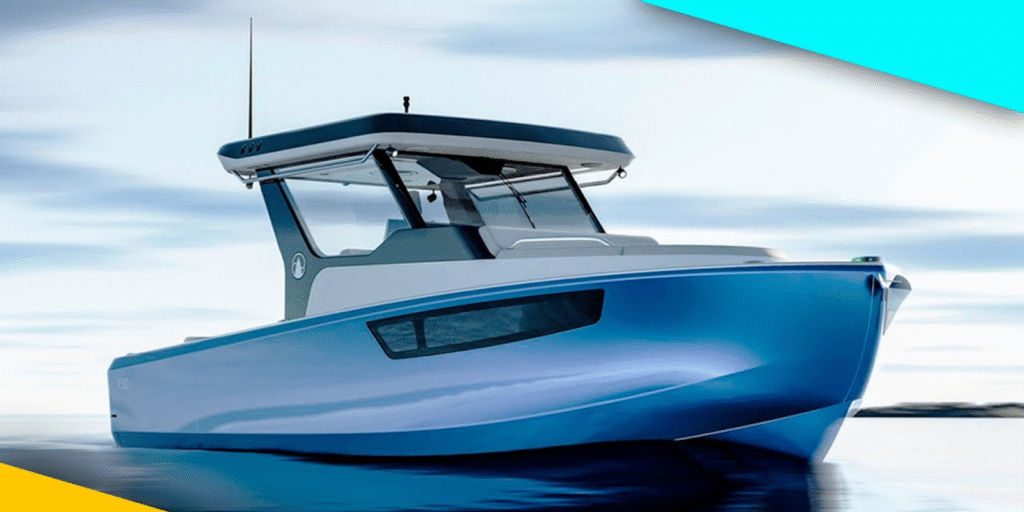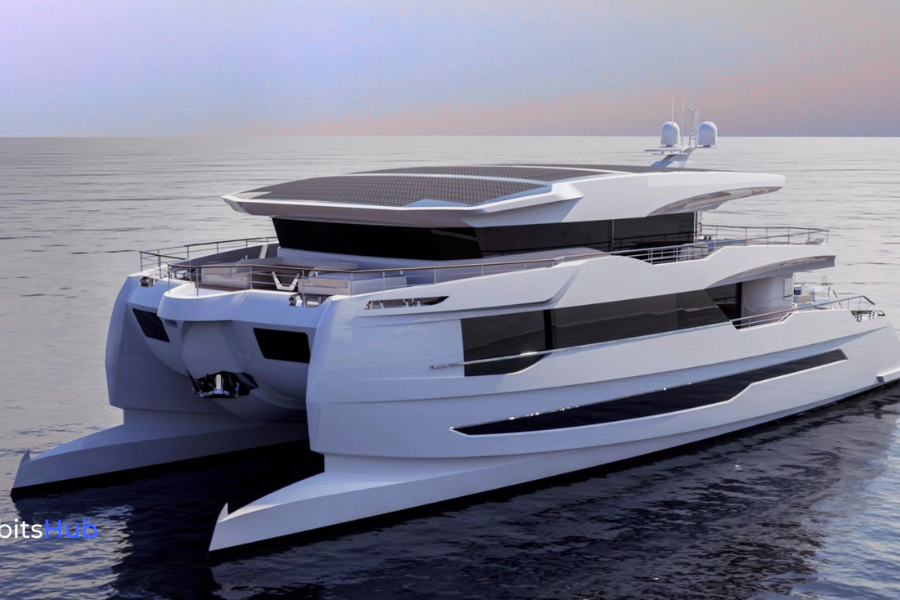Boating has always been a cherished pastime, offering a unique way to connect with nature and explore open waters. However, traditional gasoline-powered boats come with environmental drawbacks, including pollution, noise, and high maintenance costs. The growing demand for sustainable alternatives has led to the rise of small electric boats—eco-friendly, efficient, and packed with innovative technology.
These boats are not just a niche market anymore; they are becoming the future of recreational boating, fishing, and personal watercraft. Whether you’re an avid boater looking for a quieter experience or a first-time buyer interested in green energy solutions, small electric boats offer numerous advantages.
What Makes a Small Electric Boat Special?
Unlike traditional boats that rely on gasoline or diesel engines, electric boats are powered by battery-driven motors. This simple yet highly efficient system allows boaters to navigate the waters with minimal environmental impact. The propulsion system is clean, silent, and cost-effective, making it an attractive choice for those looking to reduce their carbon footprint.

Beyond sustainability, small electric boats come with several benefits, including reduced operational costs, lightweight construction, and cutting-edge marine technology. From fishing enthusiasts to casual boaters, these boats cater to a wide range of users who seek an enjoyable yet responsible boating experience.
The Technology Behind Electric Propulsion
Electric propulsion is at the core of small electric boats, offering an innovative alternative to fuel-driven engines. The system consists of a battery pack, an electric motor, and a control system that manages power distribution. With advancements in lithium-ion battery technology, modern electric boats can now offer longer cruising ranges, faster speeds, and shorter charging times.
Battery efficiency plays a crucial role in determining how far an electric boat can travel on a single charge. Many manufacturers are integrating solar panels into their designs to extend battery life and enhance sustainability. Some boats even come with regenerative braking systems, which convert energy from the water’s resistance back into power for the battery.
Advantages of Small Electric Boats
One of the biggest advantages of small electric boats is their eco-friendliness. They produce zero emissions, making them an excellent choice for environmentally conscious boaters. Unlike traditional engines that release harmful pollutants into the air and water, electric motors operate cleanly without any fuel combustion.
Another major benefit is the quiet operation. Small electric boats provide a peaceful boating experience, allowing you to enjoy the sounds of nature without engine noise. This is particularly beneficial for fishing, as it prevents disturbing marine life.
In addition to their environmental benefits, small electric boats are more cost-effective than gasoline-powered boats. They require less maintenance, as there are fewer moving parts that can wear out over time. The absence of fuel costs also makes them a budget-friendly option for boaters who want to save money in the long run.
Sustainable Boating: A Step Towards a Greener Future
The global shift towards sustainability has impacted various industries, and boating is no exception. As concerns about climate change and environmental conservation grow, more people are looking for eco-friendly alternatives to traditional watercraft.
Electric boats align perfectly with the principles of sustainable boating. By reducing reliance on fossil fuels, they help lower carbon emissions and prevent fuel spills that can harm marine ecosystems. Additionally, many manufacturers are focusing on using recycled and biodegradable materials in boat construction, further enhancing their sustainability.
Governments and environmental organizations are also encouraging the adoption of electric boats through incentives and regulations. In some regions, restrictions on gasoline-powered boats in certain waterways have led to increased interest in electric alternatives.
Exploring the Performance of Small Electric Boats
Many people assume that electric boats lack the power and performance of traditional boats, but advancements in marine technology have proven otherwise. Modern electric propulsion systems offer impressive acceleration, smooth handling, and competitive speeds.
Battery-powered boats are now available in various sizes and configurations, from compact personal watercraft to larger models designed for family outings. Some electric boats can reach speeds of up to 30 mph, making them suitable for various recreational activities.
One important factor to consider when choosing an electric boat is battery capacity. Higher-capacity batteries provide extended range, allowing boaters to enjoy longer trips without worrying about recharging. Some models also come with modular battery systems, enabling users to swap out batteries for extended use.
Electric Boats for Different Lifestyles
Small electric boats cater to various boating lifestyles, making them a versatile choice for different activities.
- Recreational Boating: If you enjoy leisurely cruises on lakes or calm coastal waters, a small electric boat provides a relaxing and eco-friendly experience. Their quiet operation enhances the enjoyment of nature without the noise of a gas engine.
- Fishing Boats: Anglers benefit from electric boats because they don’t disturb fish with loud motor noises. The low-maintenance design also means more time spent fishing and less time dealing with engine repairs.
- Personal Watercraft: For solo adventurers or those looking for a compact and efficient ride, small electric watercraft offer convenience and portability. Their lightweight design makes them easy to transport and launch from various locations.
Comparing Electric Boats to Traditional Boats
When deciding between an electric boat and a traditional gasoline-powered boat, there are several factors to consider.
- Environmental Impact: Electric boats have zero emissions, while gasoline-powered boats contribute to air and water pollution.
- Operating Costs: Charging an electric boat costs significantly less than fueling a traditional boat. Over time, this leads to substantial savings.
- Maintenance: Electric motors require less maintenance compared to combustion engines, which need regular oil changes and fuel system upkeep.
- Noise Levels: Electric boats operate almost silently, whereas gas engines produce loud noise that can disrupt the boating experience.
- Performance: While gasoline engines still offer higher speeds for racing and heavy-duty use, electric boats are catching up with improved battery technology.
The Future of Marine Technology
The marine industry is rapidly evolving, with continuous advancements in electric propulsion and renewable energy integration. In the near future, we can expect even more efficient and powerful small electric boats that push the boundaries of performance and sustainability.
One promising development is the use of hydrogen fuel cells as an alternative power source for electric boats. Hydrogen-powered boats could extend travel range while maintaining zero emissions, offering another step forward in green energy solutions.
Additionally, innovations in battery technology, such as solid-state batteries, promise faster charging times and increased durability. These improvements will make electric boating even more practical and accessible for a wider audience.
Learn more about: Software TGD170.FDM.97 New Release: A Game-Changer in Software Innovation
Conclusion
Small electric boats are transforming the boating industry with their eco-friendly design, quiet operation, and cost-effective performance. As more boaters embrace sustainable boating, the demand for electric propulsion continues to grow. Whether you’re looking for a relaxing ride, an efficient fishing boat, or a personal watercraft, these battery-powered boats provide a reliable and environmentally responsible solution.
With advancements in marine technology and renewable energy, the future of small electric boats looks promising. As battery technology improves, these boats will offer even greater range, speed, and convenience. If you’re considering making the switch, now is the perfect time to invest in a quiet, lightweight, and high-performance electric boat that aligns with the future of green energy.
FAQs About Small Electric Boats
1. How long does the battery last on a small electric boat?
Battery life depends on the model and usage. Most small electric boats can run for 2–8 hours on a single charge, depending on speed and battery capacity. Some boats also feature swappable battery systems for extended trips.
2. How fast can a small electric boat go?
The speed of a small electric boat varies by model and motor power. Some boats reach speeds of 5–10 mph, while high-performance models can exceed 25–30 mph.
3. How long does it take to charge an electric boat?
Charging time depends on the battery type and charger. Standard charging can take 4–12 hours, but fast-charging systems can reduce this time significantly. Solar charging is also an option for extended use.
4. Are small electric boats suitable for fishing?
Yes! Electric fishing boats are perfect for anglers because they are quiet, reducing the risk of scaring fish away. Their low maintenance and eco-friendly features also make them an excellent choice for sustainable fishing.
5. Do electric boats require maintenance?
Compared to gasoline-powered boats, small electric boats require much less maintenance. With fewer moving parts, there’s no need for oil changes, fuel system maintenance, or exhaust repairs. Regular battery care and motor inspections ensure smooth performance.
6. Can I use an electric boat in saltwater?
Yes, but it’s essential to choose a model designed for saltwater use. Marine-grade materials and proper maintenance, such as rinsing after use, help prevent corrosion.
7. Are electric boats more expensive than gas-powered boats?
The upfront cost of a small electric boat may be slightly higher, but the long-term savings on fuel and maintenance make them more cost-effective over time.
8. Where can I charge my electric boat?
You can charge your boat at home, marinas with charging stations, or use portable power sources. Some models also support solar charging for added convenience.
9. What is the range of a small electric boat?
Range varies depending on battery capacity, motor power, and cruising speed. Most battery-powered boats can travel between 10–50 miles on a full charge.
10. Are there any government incentives for electric boats?
Some regions offer incentives or rebates for eco-friendly boats, including tax credits and grants. Check local regulations for potential benefits.
